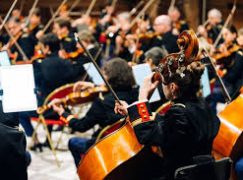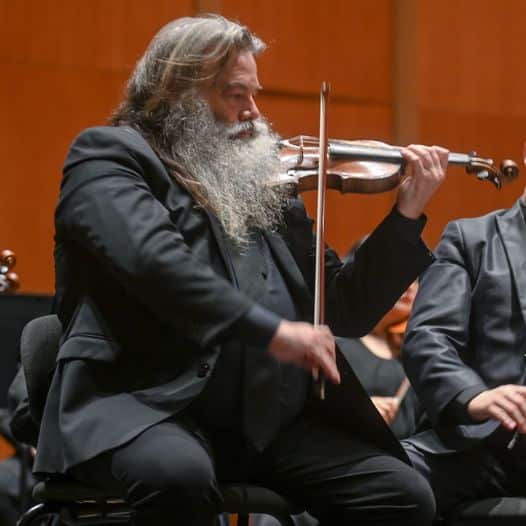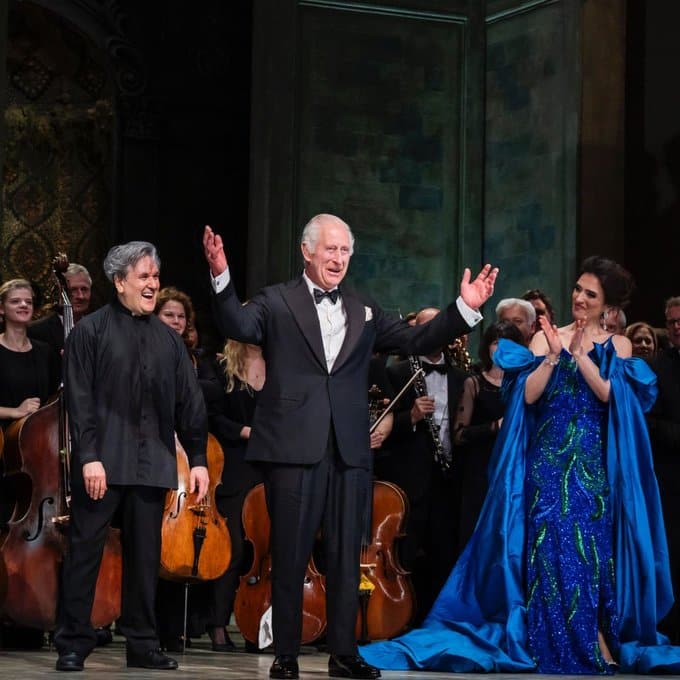Dear Alma, Playing in an orchestra I need a second job
OrchestrasDear Alma,
I live in a small city and have been a member of the orchestra for one season. It’s a good orchestra, and I was actually surprised that I got in. It’s a huge learning curve for me, and I like the work. I only have one slight problem, which is that the pay (because we play only one week a month) isn’t enough to live on. A lot of the members have regular “day” jobs which support their basic needs. But I love music and don’t want to waste my passions behind a desk or working retail. I have 2 roommates and can’t keep going on like this.
Any ideas?
Making Ends Meet
Dear Making Ends Meet,
This is a common problem for musicians as many of the jobs we have don’t pay enough to support us. And if you live in a smaller city, it might seem as if there are not enough other opportunities available to pull it all together.
It does seem like you need to take on a second job if you plan on staying where you are, however. If you love what you do and want to make a full career of orchestral playing, look for opportunities to audition for larger orchestras in other locations, and in the mean time, learn the repertoire, be a respected and reliable member of your current orchestra, and make sure you leave that job with a stellar recommendation.
When I was young, I worked many odd jobs to make ends meet, both through school and for a number of year after. These jobs ranged from reading the newspaper to an elderly blind woman early every morning, to restaurant work, making and selling my own jewelry and clothing, and busking on the street. Each and every one of these jobs taught me skills that I have turned to over and over again. Hard work, ability to get along with a variety of people, making cold calls, and learning to live on a tight budget has gotten me through thick and thin, and I wouldn’t trade those experiences for anything.
Making Ends Meet, there are many music-related odd jobs that you can pursue, from private teaching to wedding gigs to being involved in music from an administrative side. Talk to the members of your orchestra and ask them about their jobs – I bet someone might just know of a part-time job that is available. Talk to your orchestra management – they are a terrific resource and will offer great advice and tips about the local community.
Keep an open mind, hustle, be ready to learn some new skills, live modestly, and your life is bound to be richer and more interesting. And you might just be able to make your rent.
Questions for Alma? Please put them in the comments section or send to DearAlmaQuery@gmail.com






FWIW, The Guardian newspaper just put out a call to working musicians, here’s the title, “Tell us your experiences of making a living from music
We would like to hear from professional musicians about how they make a living from their work and the obstacles they face.”
It’s time that “civilians” know what it’s like “doing what you love” for a living.
Fierywoman…. Where are the details please?
Here you go:
https://www.theguardian.com/music/2024/apr/30/tell-us-your-experiences-of-making-a-living-from-music
Very interesting! Alma’s ears were burning again. Good topic, we’ve all been there, doing that.
Unless you live in or near big metro areas, making a living playing music, especially classical, is tough. Teaching can help, but only if there are a lot of students who can afford to pay for them. One trumpet player I work with was in your situation and on a lark took a web design class at the local college. He loved it and took more. Now he’s a self-employed web guru and pulls in well over $100k but still gets to play in the orchestra since he can set his own hours. Coding isn’t for everyone but it sure pays better than being a barista or Uber driver.
The case for the day job is this: chase your dream, but also make rent. I played in a pit orchestra in a major city. Took auditions in my early and mid twenties until I figured out how many players better than me were out there.This was back in the late 70s.
Eventually I took a civil service exam (the PACE test) and worked for the federal government. I was trained on the job to be a computer programmer. The federal government was a good employer. I requested part-time employment at 24 hours and was granted it (try playing 8 Nutcrackers a week and working another 40 hours!). I had the best of both worlds and am now comfortably retired.
I’m not sure the opportunities I had exist at the feds anymore—the PACE test nor OJT. I was in the right place at the right time.
Q: what’s the difference between 16″ pizza n classical musician?
A: the pizza can feed a family of 4.
When I started out as a freelance musician in the 60s, there was enough work to make a modest living. As time went on, it has become increasingly difficult to make it. Now it’s impossible except for a very small number of people. I did everything I could to stay in the business, including teaching and piano tuning. I was fortunate to be around at the end of the good times. When I joined the musicians union in Chicago in 1968, there were thousands of members. Now there are only a few hundred members.
The arts have always been tough to make a living at and those in orchestras that can be considered full time are very lucky (even though playing in an orchestra is pretty much like working in a factory).
For inspiration, there are many successful musicians that actually had “day jobs” but made an impact in music or some sort of creative arts.
Here are just a few. Perhaps others will add to the list:
< Charles Ives (insurance)
< Philip Glass (taxi driver, plumber)
< Rimsky Korsakov (naval officer)
< Vic Firth (percussion equipment and beyond)
< Daniel Harding (airplane pilot)
Small cities often offer a better life style along with reduced costs of living. In this post Pandemic era where Zoom is available and working from home is the New Norm, a creative person could play in a smaller orchestra and find a secondary skill that provides a good living.
Music schools should offer career guidance that helps students discover their talents beyond music.
Any musician with discipline can do just about anything else and thrive!
In the 25 years that I played professionally, I almost always had some kind of “day job” in order to support my music habit.
At first I was fortunate to have a cheap apartment (studio) in a city with a low cost of living. But I still had to do part-time stuff – lots of private lessons, childcare, etc. And I had no benefits.
I finally decided I needed benefits, so I looked for full-time work and got it.
Fortunately my boss knew that my orchestra career was my main priority and he was very accommodating when I had to leave early or miss a day.
Because we were mostly a per-service orchestra, with only a handful of full-time players, almost everyone had some kind of day job, either in the music field or some kind of desk job, etc.
We were still pretty good musicians.
What makes you a musician is not how you make ends meet, but the effort you put into playing well, despite what else you do for a living.